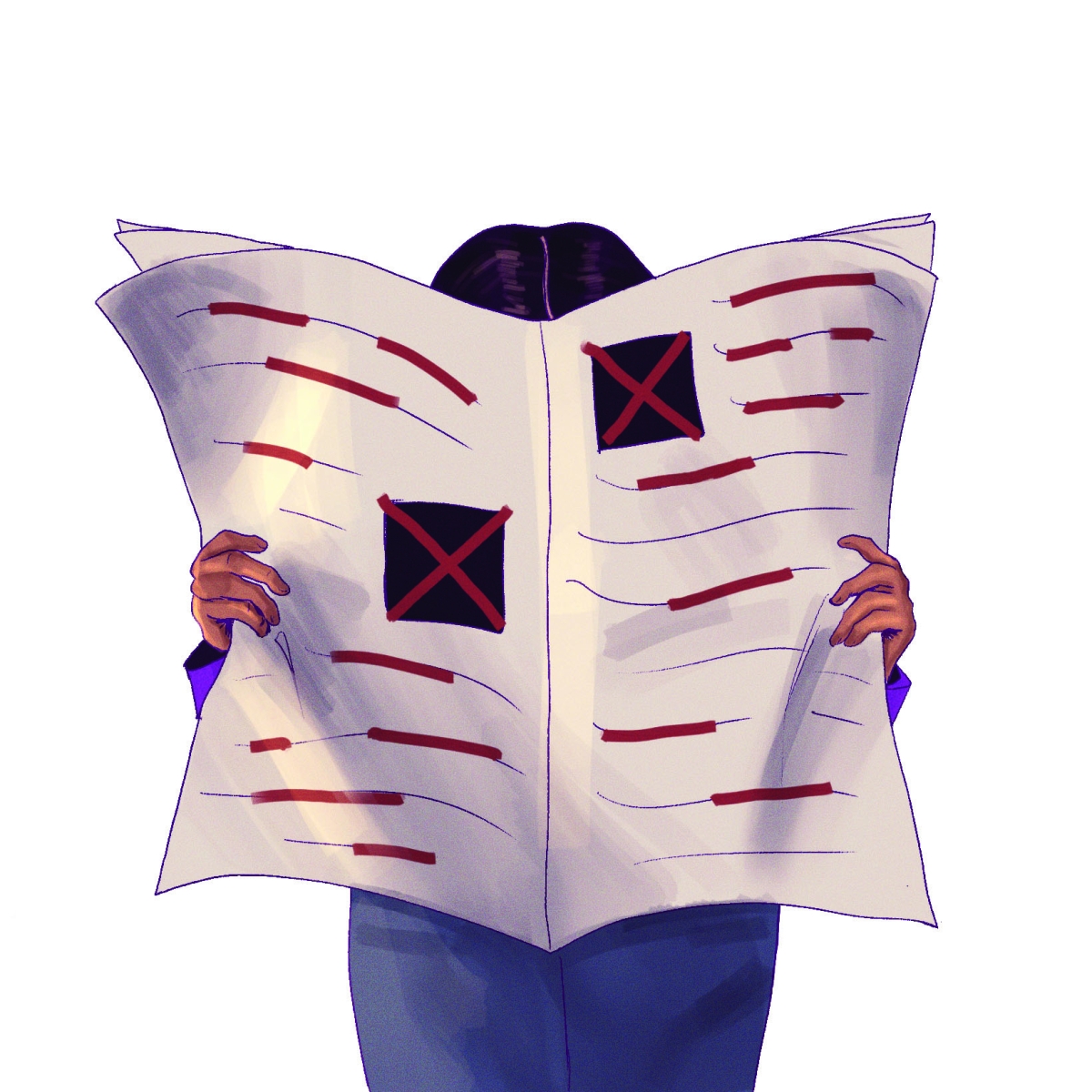The press has long served as a watchdog and beacon for the democratic principles established by the First Amendment of the Constitution. By leveraging press independence, journalists in the United States have been able to hold government officials and entities accountable through reporting.
“They [the Founding Fathers] wanted to provide the greatest foundation for the press to be able to do its important work to help our fledgling democracy,” said Adam Dawes, CEO of the Embarcadero Media Foundation. “And so they built in strong press freedoms from the beginning of the Bill of Rights.”
Now, the Trump administration’s recent actions have threatened to impede America’s commitment to free speech.
Verde believes that these actions threaten press freedoms, and that no president should use their power to decide which news sources have access to report on important events.
Throughout his first term, President Donald Trump openly expressed frustration with the press, labeling opposing coverage as “fake news” and publicly criticizing journalists who wrote against him and his administration, according to Politico. In a 2017 statement on X, then known as Twitter, Trump denounced the press as “the true Enemy of the People”.
In February, the Trump administration restricted the Associated Press’ access to presidential events because the news organization chose not to adopt the “Gulf of America” — previously known as the Gulf of Mexico — in their reporting, in compliance with Trump’s Executive Order 14172. Soon after, the administration announced it would be taking direct control over which news sources would have access to White House affairs — a responsibility traditionally overseen by the White House Correspondents’ Association, which represents over 60 news outlets, according to Politico.
Some of these outlets include The New York Times, Reuters, CNN, the Associated Press and Fox News. By involving a variety of news sources in their press pool, the WHCA ensured that a diverse range of perspectives were represented when reporting on the president’s actions. Now, the WHCA has been sidelined.
“It [restricting the Associated Press’ access] is being punitive,” said Ted Glasser, a communications professor emeritus at Stanford University. “It’s punishing the press for saying something that Trump didn’t want the press to say. That’s not my understanding of press freedom.”
Other incidents widely suggested to be connected to free speech have been occurring in the nation’s colleges. In March, Rumeysa Ozturk, a Turkish doctoral student at Tufts University, was detained by Department of Homeland Security agents for “engaging in activities in support of Hamas,” according to a press statement made by a DHS spokesperson. Her visa was subsequently revoked.
Earlier this year, Ozturk had co-written an op-ed for The Tufts Daily, calling for “the Tufts administration to meaningfully engage with and actualize the resolutions passed by the Senate” with regard to Israel-and-Palestine-related activities occurring on campus.
Though Trump’s actions have not directly violated freedom of speech or freedom of the press, some are concerned about the future of press responsibility.
“If you’re allowed to handpick the people who report on you, you’re going to inevitably run into bias, and you’re going to end up only getting friendly questions,” said Faizan Kashmiri, a Palo Alto High School student journalist. “It takes away the ability of the press to be a watchdog.”
Kashmiri said this precedent of self-censorship could lead to stories being written based on the need for presidential favor, not by a commitment to relevant, ethical and honest reporting.
“I’m worried that the next generation of journalists … are going to be so meek, so focused on decorum and compliance, that when the moment comes to raise the clarion of freedom of speech, press and transparency, these journalists are going to run and hide because they were trained to not talk about these controversial issues,” Kashmiri said.
As the struggle for press freedom continues, it is crucial to remember the foundational role the press plays in our democracy.
“It [the press] is absolutely crucial to a functioning democracy,” Glasser said. “You can’t have a free society unless you have a free press.”
Editorial: Trump’s policies restrict freedom of the press
verdemagazine
•
April 3, 2025
Story continues below advertisement





